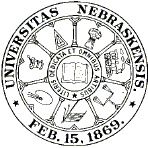
University Studies (University of Nebraska) (1888–1984)
Date of this Version
5-1942
Citation
1942 by the Board of Regents of the University of Nebraska
Abstract
One who ventures upon an account of how the teachers of Greek antiquity fared in the matter of remuneration might do well to begin by entreating exemption from such a penalty a the luckless Phrynichus brought down upon himself for his tear-provoking tragedy of the mileton alusis. The Athenians fined Phrynichus a thousand drachmas, we are told, "because he had reminded them of their own troubles."
Generally speaking, intellectual labors in ancient Greece prior to the Hellenistic Age were undertaken for their own sake, with no thought of securing material rewards.2 The dramatists were spurred by competition, but not by visions of royalties. The poets, except for occasional ones like Pindar and Simonides, who would write poems to order for a consideration, were true devotees of art for art's sake. Herodotus labelled his work an "inquiry," and it was an inquiry carried out at his own expense "that the deeds of men might not be obliterated by time." This high-minded attitude became a tradition, and when the tradition was first violated by an entire group of learned men, the sophists, a cry of startled protest mounted to high heaven, and a dispute was inaugurated which did not subside for centuries to come. Should teachers be paid? and why? and how much?

